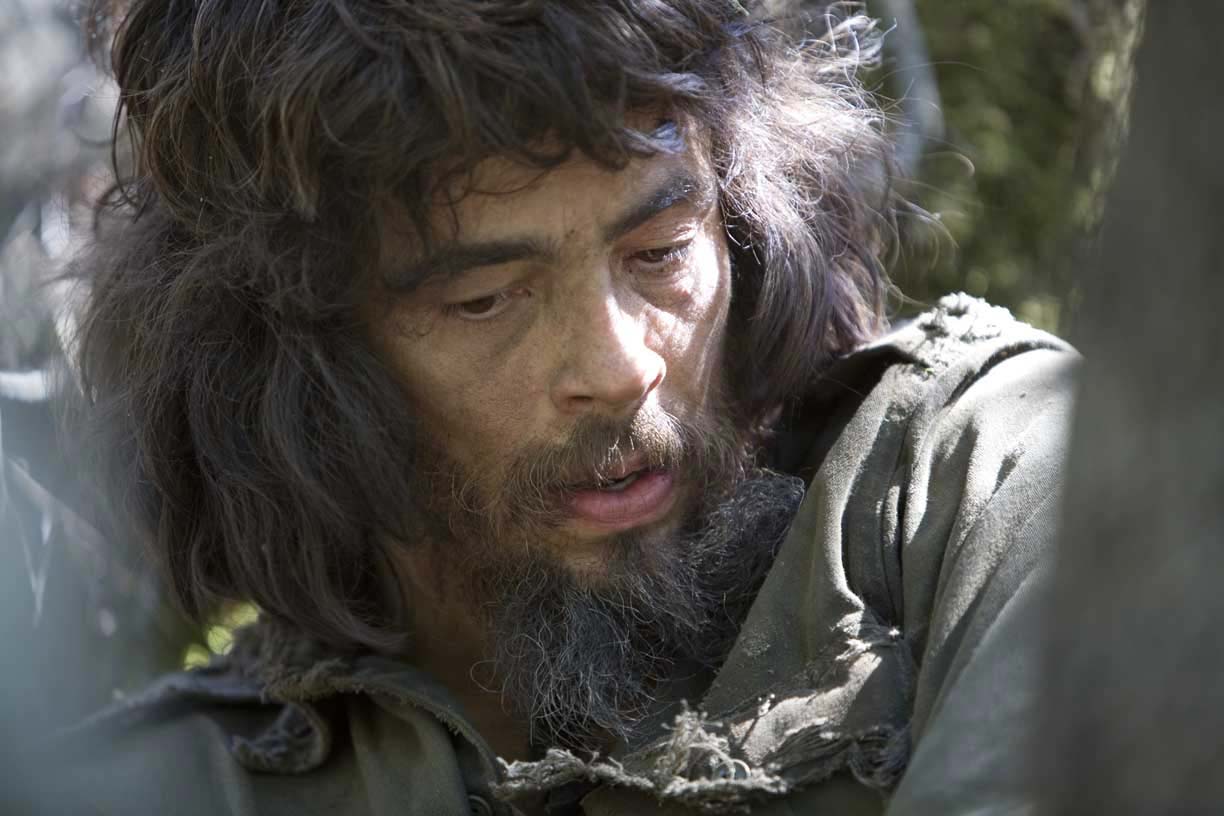Che

Che
Dir. Steven Soderbergh
Yr. 2008
Spine #496
Written by Robert D. Patrick
Denounced by vitriolic critics, the wily cynicism of pen-wielders and casual moviegoers alike bemoaned Steven Soderbergh’s Che. With its polarizing subject and David Lean-like running time, the sweat lacquered anti-epic was netted in confusion. Why make this film at all? Soderbergh wasn’t coy when declaring his abjection for the movie’s aggregate score, going as far as to fan the flames of Rotten Tomatoes. The perpetually bedraggled Sean Penn took up the task as the film’s unofficial drummer boy, lauding the movie for it’s “timing.” Still, the ash-flecked faces and pensive kindling within Che’s 257 minute run time proved to be an inscrutable issue that plagued audiences.
Benicio del Toro’s aching performance as Ernesto Guevara razes the racks of diaphanous Hot Topic t-shirts bearing the late revolutionary’s likeness. Che’s lungs, perforated by the exclamation of asthma, leaves the beleaguered leader in physical disarray. Soderbergh’s academic thesis paints veins into the body of a two-dimensional screenprint. The Marxist general goes from scholarly medical student to a twig-booted military strategist. The romanticism is erased, leaving only incomplete lines; the ghosts of complete sentences. Soderbergh’s tightrope walk is a test of endurance, fitting of his film’s enigmatic and sometimes reviled central character. The pain and frustration is present. Deliberate omissions are made, by the film’s director, in order to compound the sense of loss and confinement. How many years go by, whittled away without notice?
Soderbergh’s subsequent films have extended a weaker handshake to the audience. None of the auteur’s pictures since Che have eclipsed two hours, perhaps signaling that the director has sifted sand on the fire that possessed him to film a pastoral – yet suffocating – epic. The monochrome, soil-spackled reverie of boot-tilled earth in Che provides an exhaustive look at the effusive wick of mortality.
By the end of the 257 minute opus, there is an ethereal sense of defeat; a subconscious pockmarked by despair. Who are we as people? What are our limitations? Is everything repetition compulsion? Soderbergh casts shadows deeply, as to imprint these questions into the viewer’s mind. At the end of the journey, we’re stumbling through the cake-frosted fog, alone, half-flesh and half-phantom. A malleable physical presence, not up to par with the trenchant pride of a heat-blanched mind. While Che isn’t pretending to eschew esoteric or indulgent phlegm, the movie expunges the very real sadness of future loss. And nature is there, all the while, whether in the thickets of Bolivia or the freshly dug ground of America. Watching, without a care or a burden, as it encases your fibers.
